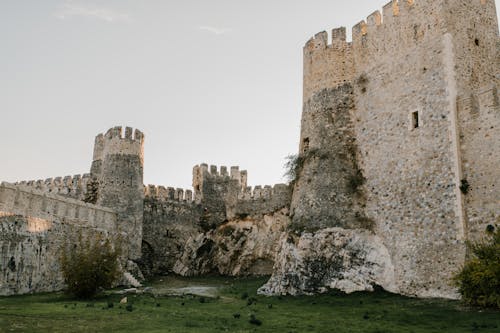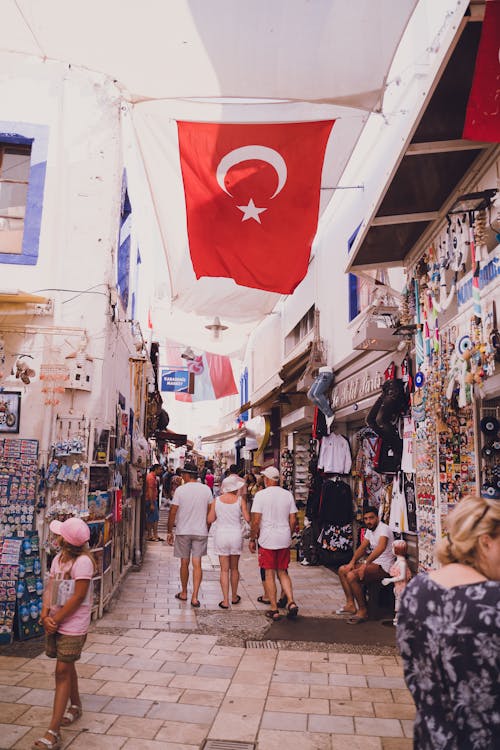Best things to do in Bodrum – Turkey’s port city

About Bodrum
Bodrum is a port city located in the southwestern coastal region of Turkey. It attracts people from all walks of life, from budget backpackers to world-famous millionaires, as it has long fostered a hedonistic lifestyle. The term relates to the town centre and the peninsula, which we will discuss in this blog. It is famous for the windmills and whitewashed buildings, strewn throughout the place.
The Bodrum International Airport, which has many flights to and from different countries, is a convenient way to get here. The bus terminal sells low-cost tickets to various destinations throughout Turkey, and if arriving by sea, Bodrum is an official port of entry.

Reasons to visit Bodrum
- Miles Airport is close and provides easy access.
- Scenes of active shopping and nightlife
- The lifestyle of sandy beaches, beach clubs, and marinas
- Unique architectural styles and an impressive transportation network to the rest of Turkey
- There is a wide range of accommodations to suit everyone’s needs, from economical to deluxe.
- Diverse bars and restaurants offer a diverse choice of activities.
Turkey Tour Package Starting @ ₹52,448
Things to do in Bodrum
- Bodrum castle
- Halicarnassus Mausoleum
- Theatre of Halicarnassus
- Museums
- Beautiful beaches
Bodrum castle
Bodrum Fortress, the most popular tourist site, has a fascinating storey to tell. Built by the Knights of St John in the 15th century near the harbour and overlooking the Aegean Sea, it fell into Ottoman hands in the 16th century. Its stunning coastline position, which is on the tentative list for UNESCO world heritage sites, places it on the front of picture postcards and tourism magazines to symbolise the area.

The four towers of the castle are Germans, Italians, French, and Englishmen based on the names after the people who erected them
Suleiman the Magnificent took control of the fortress in the 16th century, and it became a jail in 1895.
Halicarnassus Mausoleum
Did you know that Turkey is home to two of the ancient world’s seven wonders? One was the Artemis Temple in Selcuk, and the other was the Halicarnassus Mausoleum at Bodrum. Unfortunately, the remains of the tomb erected in 350 BC. Back then the soldiers collected the stones of the Mausoleum to enhance the building in upcoming years. The British Museum has three statues discovered during excavation works, while the Bodrum Museum has a model reproduction of what it would have looked like. The mausoleum was toppled by the earthquakes and also the last of world’s six ruined wonders that was demolished
The majority of the marble slabs and polished stone ended up as spolia for Bodrum Castle, but the mausoleum’s original site remains humbling because of what it signifies.
Theatre of Halicarnassus
The Greek-style theatre was built during Mausolus’ rule in the 4th century BCE. Later rebuilt by the Romans in the 2nd century CE, they are a few streets up from the mausoleum site.

The architect had a flair for the dramatic since the cavea of the theatre offers a breathtaking view of the Aegean.
This venue has a seating capacity of roughly 13,000 people in its prime time. Also, the remaining space is used as a stage for cultural performances throughout the peak season.
You can tell where the caveat proceeded up the slope by looking at the excavated hillside.
Museums
1.Zeki Müren Arts Museum
Zeki Müren, a singer and actor who spent his life in Bodrum, is a monumental figure in Turkish culture.
Müren appeared in dozens of films and released more than 30 albums, and his impact cannot be overstated.
His house on his named street in Bodrum was turned into a museum after he died. Despite plenty of stage costumes and images to back up Müren’s flair for the flashy, the home itself is sparse. It also offers a poignant impression of a guy preferring a calm existence.
There is a lot of jewellery, hi-fi equipment, and paintings that he created in terms of memorabilia.

2.Bodrum Deniz Müzesi (Maritime Museum)
The shipbuilding sector in Bodrum received a boost in the early nineteenth century because of the Ottoman battleships. The demand for three-masted gulets (schooners) for trade, fishing, and sponging declined in the mid-nineteenth century. Then the shipbuilding helped in three-masted gulets (schooners) for trade, fishing, and sponging.
The nautical museum in Bodrum, which opened in 2011, is an old bazaar structure (bedesten) near the castle and houses a number of models for the numerous wooden boats constructed in the city.
Much of what you see, including 6,000 shells , came from Cevatakir Kabaaaçl, a Crete-born writer in Bodrum. Also known as “Fisherman of Halicarnassus” for bringing Bodrum’s reputation to prominence.
3. Bodrum Museum of Underwater Archaeology
The castle has housed a remarkable museum dedicated to submerged finds made at Ancient, Medieval, and Early Modern shipwreck sites throughout the Turkish Aegean since the 1960s.
This is Turkey’s largest museum, also with a fascinating collection of Mycenaean copper ingots and vases, Ancient Egyptian seals, royal Carian jewellery, Roman amphorae, Medieval Islamic glassware, a 16th-century Spanish four-Real piece, and much more.
These items are scattered throughout the mediaeval interior of the castle and are complemented by interesting tidbits, such as a history of Amphorae’s evolution.
Two rebuilt shipwrecks from the Bronze Age and Medieval periods are also on display in the museum.
Beautiful beaches
While the public beach in Bodrum is more than acceptable, if you’re willing to venture a few kilometres, you’ll find some spectacular beaches.
A short distance west is the Blue Flag Bitez Beach, is one of the best on the peninsula for families with small children.

Bitez Beach is a scallop-shaped bay with gravelly sand (bring flip-flops) and a large stretch of shallow, warm, and transparent water, shielded to the east by a lengthy headland.
The bay, like all the popular beaches around Bodrum, has many restaurants, which hire out sun loungers for a fee, or for free with the purchase of a meal.
Also read: 10 best things to do in Bodrum, Turkey
Other attractions in Bodrum
- Windmills of Bodrum
- Bodrum Harbour
- Pedasa Hike
- Bardakci Cove
- Myndos Gate
- Midtown Shopping Centre

Bodrum is famous for being a yachting and sailing hub. It is also known as the pioneering town for traditional gulet cruises. It is an excellent spot to visit in Turkey if you’re searching for a gorgeous seaside resort with superb food, fantastic hotels, and a wide range of activities.
Bodrum was previously regarded as a mass-market tourist destination, but it is located farther out-of-town, and that the city center consists of attractive streets, a quiet harbour area, and lovely marketplaces.
Check out Pickyourtrail for more details on Bodrum and other destination packages as well. Hope this blog was useful to know about Turkey’s interesting port city – Bodrum !
Related Posts
Update your location?












